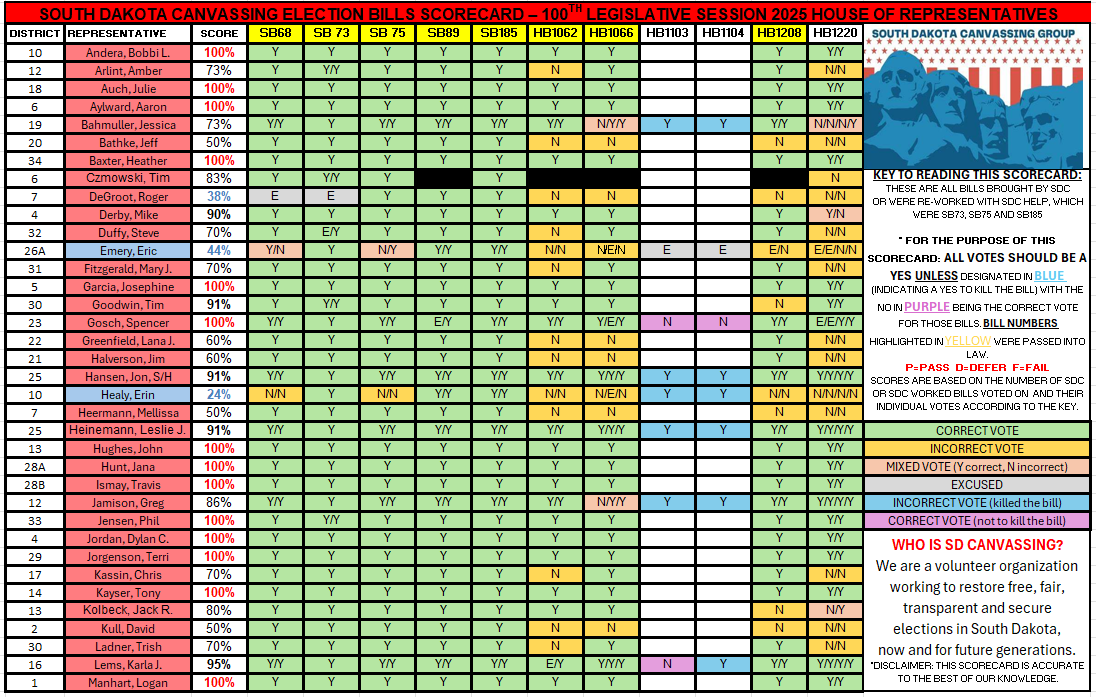On Tuesday, Governor Rhoden vetoed a bill that would have made it harder for “signature generators” to sit in Sioux Falls and Rapid City and get constitutional amendments on the ballot. Specifically, the bill would have required signature collection in each senatorial district in the state. This bill was approved by an overwhelming majority in the House and a majority in the Senate.
I don’t think anyone disputes that citizens need a way to turn back poor legislation (Referred Law) and introduce laws that might not make it to the floor in the legislature (Initiated Measure), but changing the constitution seems extreme and dangerous.

Some South Dakotans have suggested people are using constitutional amendments to reduce the amount of money available for candidates (if people have to donate to fight the constitutional changes there isn’t as much money for candidates), push things that give the “powers that be” and out-of-state interests more control, and allow a few individuals to make a lot of money on the signature collection process.
The veto is even more perplexing, because less than half the state lives in the Rapid City and Sioux Falls metro areas (Sioux Falls metro, Rapid City metro, total South Dakota population), so allowing “signature generators” to cash-in in the metro areas seems exceptionally odd. By permitting the focus on metro areas, more than half the state could be disenfranchised. Small town South Dakotans have little input. And worst of all, we might be forcing something on the rest of the state they didn’t want to consider in the first place.
It also is interesting that there was a lawsuit against Mr. Weiland and his “signature generating operation” related to deceptive communication on Amendment G. There were complaints about what signature collectors communicated on Constitutional Amendment H as well, but the No on Amendment H ballot committee did not file a lawsuit.
What is the real story behind the veto? It certainly doesn’t appear to help the average person or the person who lives outside of the metro areas in the state.




